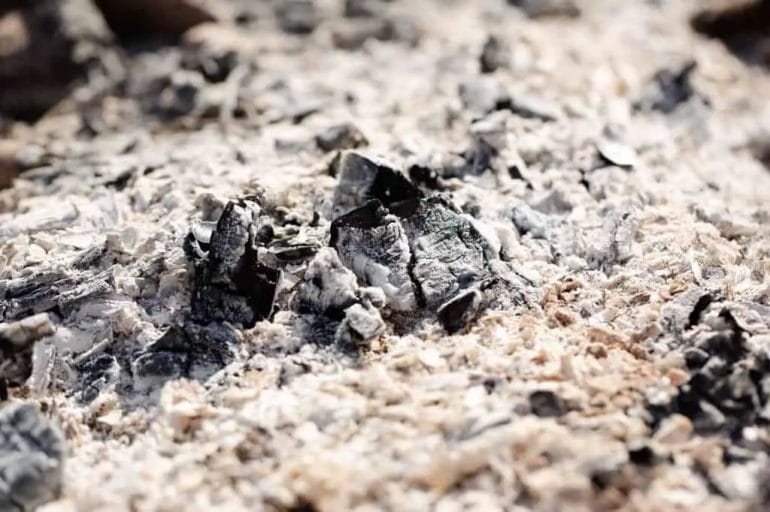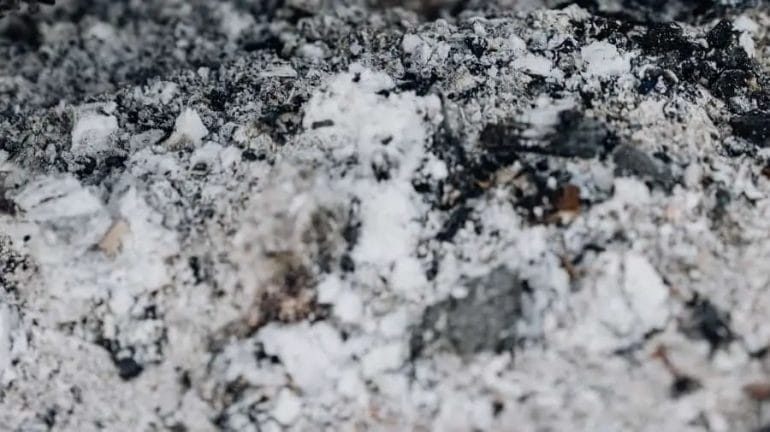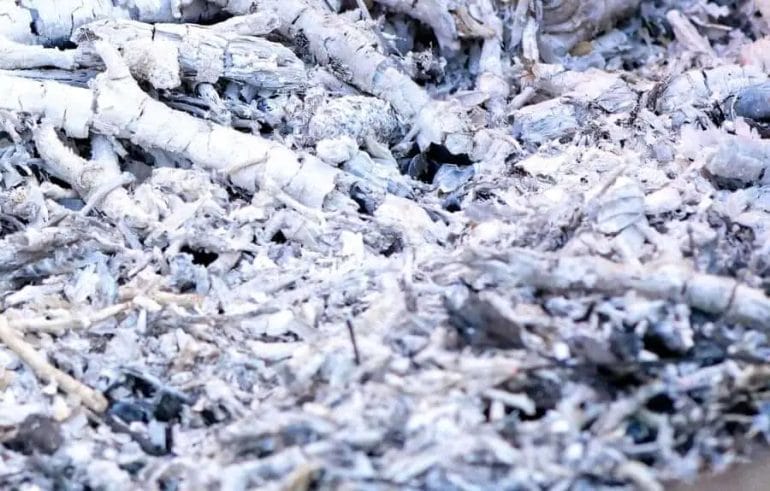Many gardeners wonder if wood ash is good for roses. The answer is yes! Wood ash is a natural and inexpensive source of important nutrients like potassium, phosphorous, and calcium that roses need to thrive. It also helps to raise the pH level of the soil, making it more alkaline, which is beneficial for roses. However, it’s important to use wood ash sparingly and in moderation, as excessive amounts can harm plants and alter the soil pH too much. So, if you have wood ash on hand, don’t let it go to waste – give your roses a boost with this organic fertilizer!

How to Use Wood Ash as Fertilizer for Roses
Roses are beautiful flowering plants that require proper care and nutrition to thrive. One effective way to nourish your roses is by using wood ash as a natural fertilizer. Wood ash is a valuable source of nutrients that can benefit the growth and health of your roses. In this section, we will discuss how to properly use wood ash as fertilizer for roses.

Benefits of Using Wood Ash
Wood ash is rich in essential nutrients that roses need to flourish. It contains high levels of potassium, phosphorus, and calcium, which are important for root development, bloom production, and overall plant health. Additionally, wood ash helps to raise the pH of acidic soils, creating a more favorable environment for roses to thrive.
When to Use Wood Ash
Wood ash should be applied to roses during the dormant season, which is typically in late winter or early spring. Applying wood ash during this time allows the nutrients to be absorbed by the soil and made available to the plants when they start to actively grow.
Applying Wood Ash to Roses
Before applying wood ash to your roses, it’s important to prepare the soil properly. Start by clearing away any debris or weeds from around the base of the plants. Then, lightly cultivate the soil to loosen it up and create a better environment for nutrient uptake.
Next, sprinkle a thin layer of wood ash around the base of each rose bush, taking care not to pile it up against the stem. The ash can be spread evenly in a circular pattern, extending out to the drip line of the plant. Avoid applying excessive amounts of wood ash, as it can raise the pH too high and cause nutrient imbalances.
After applying the wood ash, gently work it into the soil using a garden fork or rake. This will help the ash to integrate with the soil and prevent it from being washed away during watering or rainfall.
Precautions and Tips
While wood ash can be beneficial for roses, it’s important to use it in moderation and follow a few precautions:
Summary
Using wood ash as fertilizer for roses can provide valuable nutrients and help create optimal growing conditions. Remember to apply wood ash during the dormant season, prepare the soil before application, and use it in moderation. By following these guidelines, you can enjoy healthy and vibrant roses in your garden.

Tips for Applying Wood Ash to Rose Plants
Wood ash can be a beneficial addition to your rose garden, providing valuable nutrients and helping to adjust soil pH levels. However, it is important to use wood ash correctly to avoid damaging your rose plants. Here are some tips to follow when applying wood ash to your rose plants:
1. Use wood ash sparingly
While wood ash can be beneficial to roses, it should be used sparingly. Too much wood ash can raise the pH levels of the soil excessively, making it too alkaline for roses. Start with a small amount and monitor the soil pH before adding more.
2. Apply wood ash in moderation
It is best to apply wood ash to your rose plants in moderation. Spread a thin layer of wood ash around the base of the plants, being careful not to let it come into direct contact with the stems or leaves. This will prevent the risk of burning the plant.
3. Avoid using wood ash on young or newly transplanted roses
Young or newly transplanted rose plants are more sensitive to changes in soil pH. It is best to avoid using wood ash on these plants until they are well-established. Once the plants have established strong root systems, you can gradually introduce wood ash into the soil.
4. Test the pH levels of your soil
Before applying wood ash to your rose plants, it is important to test the pH levels of your soil. Roses prefer slightly acidic soil with a pH level between 6.0 and 6.5. If your soil is already alkaline, it may not be necessary to add wood ash.
5. Monitor plant health
After applying wood ash to your rose plants, closely monitor their health and growth. Watch for any signs of nutrient deficiencies or plant stress. If you notice any negative effects, such as yellowing leaves or stunted growth, discontinue the use of wood ash.
6. Consider other amendments
Wood ash is not the only amendment you can use for your rose plants. Consider incorporating other organic matter, such as compost or well-rotted manure, to improve soil fertility and structure. These amendments can provide a wider range of nutrients for your roses.
7. Maintain a balanced approach
When it comes to applying wood ash to your rose plants, maintaining a balanced approach is key. Too much wood ash can be detrimental, but a small amount can provide beneficial nutrients. Pay attention to your plants’ needs and adjust the application of wood ash accordingly.
By following these tips, you can effectively apply wood ash to your rose plants without causing harm. Remember to always use wood ash in moderation and monitor your plants’ health to ensure they thrive in a nutrient-rich environment.

Potential Risks of Using Wood Ash on Roses
While wood ash can serve as a beneficial amendment for garden soil, it is important to be aware of the potential risks associated with using it on roses. Here are some of the risks to consider:
1. Alkalinity:
Wood ash has a high pH level, making it alkaline in nature. While some plants can tolerate and even benefit from alkaline soil conditions, roses typically prefer slightly acidic to neutral soil. Excessive use of wood ash can raise the pH level of the soil, making it too alkaline for roses to thrive. It is essential to monitor the pH level of the soil when using wood ash and make adjustments accordingly.
2. Nutrient Imbalance:
Wood ash contains various nutrients that can benefit plants, such as calcium, potassium, and phosphorus. However, using wood ash as the sole source of these nutrients can lead to an imbalance. Roses require a specific balance of nutrients for optimal growth and flowering. Relying solely on wood ash may result in nutrient deficiencies or excesses, which can harm the overall health of the roses.
3. Salt Buildup:
Wood ash contains minerals and salts that can accumulate in the soil over time. Excessive accumulation of salts can lead to a condition called salt buildup, which can be detrimental to roses. Salt buildup can interfere with the uptake of water and nutrients by the roots, causing dehydration and nutrient deficiencies in the plants. Regular soil testing and proper watering practices are essential to prevent salt buildup when using wood ash.
4. Contaminants:
Wood ash may contain contaminants, such as heavy metals or chemicals, depending on the type of wood burned. These contaminants can be harmful to plants if present in high concentrations. It is advisable to source wood ash from clean, untreated wood sources to minimize the risk of contamination. Additionally, avoid using ash from materials like painted or stained wood, as these can contain harmful chemicals.
5. Plant Sensitivity:
While some plants can tolerate wood ash without any adverse effects, roses may be more sensitive to its alkalinity and nutrient content. Different rose varieties may react differently to wood ash application. It is recommended to start with small amounts of wood ash and observe the plants’ response before increasing the quantity. If the roses show signs of stress or decline, it may be necessary to discontinue or reduce the use of wood ash.
Conclusion:
In summary, using wood ash on roses can have potential risks, including increased soil alkalinity, nutrient imbalances, salt buildup, contamination, and plant sensitivity. It is crucial to monitor soil pH, balance nutrient inputs, prevent salt buildup, source clean wood ash, and consider the specific needs and sensitivities of the rose plants. By practicing caution and making informed decisions, wood ash can be used successfully as a supplement for rose gardens.
Alternative Fertilizers for Rose Plants
When it comes to nurturing your rose plants, fertilizers play a vital role in providing the necessary nutrients for their healthy growth. While traditional chemical fertilizers are commonly used, many gardeners are now turning to alternative fertilizers that offer a more eco-friendly and sustainable approach. In this section, we will explore some of the best alternative fertilizers for rose plants.
1. Compost
Compost is a natural and cost-effective fertilizer that can greatly benefit your rose plants. It is made by decomposing organic matter such as kitchen scraps, grass clippings, and leaves. Compost enriches the soil with essential nutrients and improves its structure, promoting better water retention and drainage. To use compost as a fertilizer, simply spread a layer around the base of your rose plants and gently work it into the top few inches of soil.
2. Manure
Another excellent alternative fertilizer for rose plants is manure, which can be obtained from various animal sources such as cows, horses, or chickens. Manure is rich in nutrients and organic matter that nourishes the soil and enhances the overall health of your roses. However, it is important to use well-aged manure to avoid burning the roots of your plants. Mix the manure with water to create a nutrient-rich liquid fertilizer or apply it as a top dressing around the base of your rose plants.
3. Fish Emulsion
Fish emulsion is a popular organic fertilizer derived from fish waste. It is packed with essential nutrients like nitrogen, phosphorus, and potassium, which are vital for the growth and blooming of roses. Fish emulsion is typically available in liquid form and can be easily applied by diluting it with water and spraying it onto the leaves and soil. This fertilizer provides a quick boost of nutrients and also helps improve soil fertility.
4. Bone Meal
Derived from ground animal bones, bone meal is a natural fertilizer that is particularly beneficial for rose plants. It is a rich source of phosphorus and calcium, which are essential for strong root development and overall plant growth. Bone meal can be sprinkled around the base of your rose plants and gently worked into the soil. It slowly releases nutrients over time, providing long-lasting benefits.
5. Seaweed Extract
Seaweed extract is a natural fertilizer that is obtained from seaweed or kelp. It contains a wide range of trace minerals, growth hormones, and beneficial enzymes that promote healthy plant growth. Seaweed extract is available in liquid form and can be applied by spraying it onto the foliage or mixing it with water and using it as a root drench. It helps improve the overall vigor and resilience of rose plants.
Using alternative fertilizers for your rose plants not only reduces the environmental impact but also improves the overall health and vitality of your garden. These organic options provide a well-balanced and sustainable approach to plant nutrition, ensuring that your roses thrive and showcase their beauty season after season.
FAQs
Is wood ash good for roses?
Yes, wood ash can be beneficial for roses. It contains potassium, which promotes flower production and overall plant health. However, it should be used sparingly as too much can raise the pH level of the soil and affect nutrient availability. Apply a thin layer of wood ash around the base of the rose bush and water it in well.
Conclusion
In conclusion, the use of wood ash for roses can be beneficial for their growth and overall health. Wood ash is a rich source of nutrients including potassium, calcium, and trace elements, which are essential for the development of strong and vibrant roses. Its alkaline nature also helps to neutralize acidic soils, creating a more favorable environment for roses to thrive. However, it is important to note that wood ash should be used in moderation and mixed with compost or organic matter to avoid excessive salt buildup. So, incorporating wood ash into your rose care routine can provide numerous benefits and contribute to the success of your rose garden.
